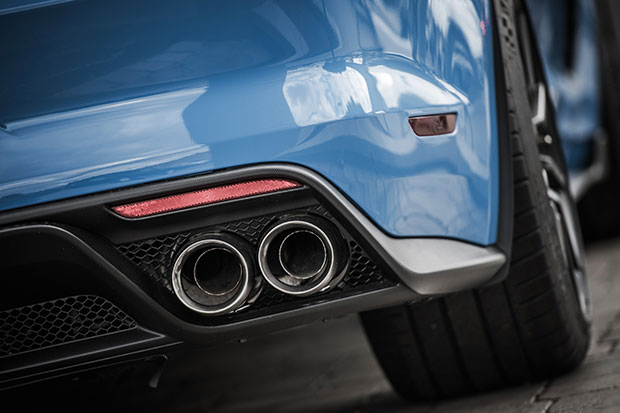11 September 2018
WLTP implementation to impact the fleet future of optional extras
The tax impact of commonly selected combinations of optional equipment on vehicle emissions following implementation of the new Worldwide harmonised Light vehicles Test Procedure (WLTP) will be 'significant', but individual options are unlikely to increase tax liability.

Those are the headline conclusions following detailed analysis by Autovista Group, data providers to vehicle manufacturers, leasing companies and other organisations, and is already leading to a streamlining of vehicle ranges and option packages.
WLTP emissions and MPG testing has now replaced for all cars the New European Driving Cycle (NEDC) testing procedure, which was based on vehicles with limited equipment fitted as standard.
However, said Samuel Keates, director of specifications at Autovista Group: "Under the new WLTP regime, worst- and best-case cars need to be tested with their optional equipment fitted to present a clear view on more achievable driving emissions and fuel consumption for each level of specification that is offered."
Analysis by Autovista Group into the impact of optional equipment on WLTP emissions figures found that most options in isolation did not have a major impact on CO2 emissions, rarely accounting for more than 1g/km of additional CO2.
The new and used vehicle pricing experts examined the impact of options on a specific variant of a premium-brand D-segment model that is a popular choice with fleet buyers.
Depending on body style and drivetrain, the model variant had CO2 emissions ranging from 152-166g/km as measured by the WLTP test. In NEDC-correlated terms, numbers being used during a transitional period in the UK until April 2020, the figures ranged from 124-136g/km. Although, said Autovista Group that "was not a vast range" it will have tax implications in the UK and in other European markets.
For example, said Autovista Group, fitting a tow bar could increase CO2 emissions by 1-2g/km because of the impact on weight and aerodynamics. A panoramic roof generated a similar effect. An increase in wheel size impacted the weight and rolling resistance of the car; fitting 18" wheels instead of 17" wheels, for example, added about 2g/km more in CO2 emissions. Fitting run-flat tyres as an option instead of the standard tyre repair kit also increased emissions by about 1g/km.
As a result, concluded Autovista Group: "It is therefore easy to see how a combination of options can add up to make a difference to the emissions profile of a car and, in turn, its tax liability."
The organisation continued: "These changes may end up costing manufacturers dearly, as the European Commission has stated that any increase in costs must not be passed on to the consumer.
"Premium brands typically have more optional extras than vehicles from the volume manufacturers and so could be more adversely affected. Conversely, Japanese and Korean OEMs could stand to benefit as their strategy has typically been to compete by offering higher levels of specification as standard on their cars than their European peers but at a similar price point."
The different WLTP testing rules also make it especially confusing for fleet managers, company car drivers and private buyers as, depending on what options are added at the dealership, additional equipment may or may not change the emissions figures and tax liabilities of a car.
That's because, explained Mr Keates: "The WLTP test does not provide for any testing of 'dealer-fit' accessories and this may incentivise manufacturers to move increasingly to 'dealer-fit only' options - especially those which can be easy to retrofit such as tow bars.
"While this adds to logistics and manufacturing complexity, avoiding the CO2 uplift from these options could save a significant amount in tax on an individual vehicle and lead to greater sales in particularly competitive segments."
Even optional extras such as sport suspension or audio systems, said Autovista Group, could increase a vehicle's weight and alter its ride, therefore adding to emissions.
The organisation said: "This adds a further level of complexity for dealers and leasing companies in communicating the varying emissions figures and, in many markets, tax liabilities."
Consequently, given the additional challenges in gaining WLTP type approval for all model variants, the additional complexity for dealers, leasing companies, fleets, company car drivers and private consumers and the higher tax liabilities themselves, it was not "entirely surprising" that many OEMS were consolidating their optional equipment offerings, said Autovista Group.
It highlighted that BMW was already looking to streamline its manufacturing process, offering fewer engine variants and less equipment options and SEAT was also now offering its cars with fixed trim levels instead of options in the UK.


